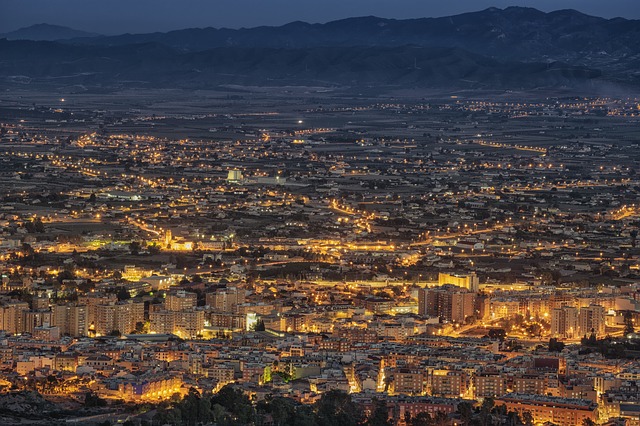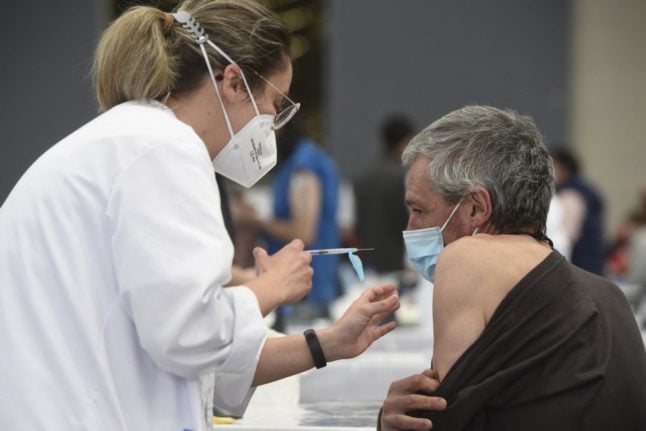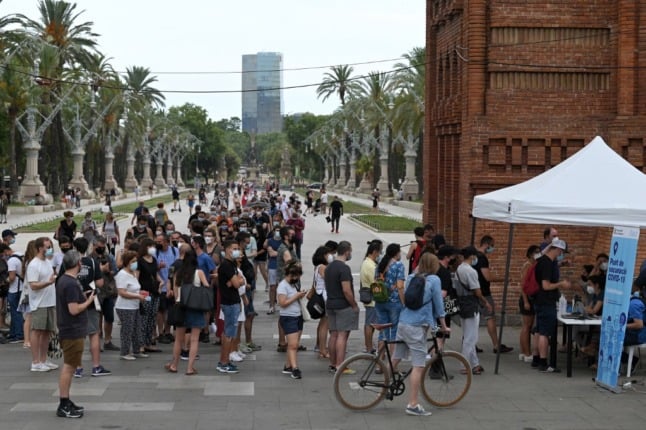Covid-19 vaccine information geared specifically towards foreigners in Spain is hard to come by currently, not least because there is no central government decision on this and it’s up to all 17 regional governments to decide and inform their extranjeros of their Covid vaccination strategies.
So far, we’ve covered the situation for foreigners in Andalusia and the Valencia region, with the general consensus for those with private health insurance being that they should either make sure they have their town hall registration (padrón) up to date or contact their local health authorities for a temporary public health card.
The most important point for this anonymous group to do is to ensure their local health authorities know of their existence.
Foreigners who are residents and pay social security contributions in Spain will already be incorporated into the vaccine strategy, although it’s always useful to check your local health centre has your most up-to-date contact details.
Where do foreigners in Murcia stand vis-à-vis the Covid-19 vaccine?
The Local Spain contacted Murcia’s Health Council to find out what information was available and their staff directed us to this bulletin.
It’s geared towards personas desplazadas, which in English can translate as displaced people, but in fact it largely refers to people whose main residence isn’t in Murcia but find themselves staying in the southeastern region currently for work or other reasons.
Murcia health authorities include in this group:
A) People who have public health care and have updated their desplazado status with Spain’s social security system.
B) People who have public healthcare who haven’t updated their desplazado status but are registered at a town hall in Murcia (padrón). These people should inform authorities so a local doctor can be assigned to them.
C) Foreigners who have a European Health Card and that live in the region
D) People who have a mútua policy (a mutual insurance company), regardless of where their provincial health service is
E) People who are residents in Murcia who only have private health insurance. They must provide the documents that accredits this – the policy, residence document, rental contract etc
All the people listed above, including foreigners, will be incorporated into Murcia’s vaccine strategy and contacted according to the priority/age group they fall under.

The town of Lorca in Murcia is home to around 21,000 foreigners. Photo: enriquelopezgarre/Pixabay
What else do foreigners in Murcia need to know?
Murcia’s Health Council goes on to talk in more detail about the Covid vaccine for foreigners, stating that “foreigners residing in the region who do not have a doctor assigned to them must update their details at the public health centre that corresponds to them”, usually the one closest to your address, “if their stay in Murcia region is longer than 6 months”.
“If they have not officialised their status as residents” – (they use the term empadronados – registered at the town hall – rather than green certificate or TIE holders) – “they must request to be vaccinated and for this they will be provided with a web link from which they can request the vaccination through their consulate, their health centre or through the information number 900121212”.
Murcia authorities go on to explain how foreigners can also “regularise” their status by registering at their town hall in the region, and then getting a public doctor assigned to them.
Foreigners who don’t have a doctor assigned to them on the day they get vaccinated should present their European Health Card, their passport or ID document and their padrón town hall certificate to prove that they are residing in Murcia.
How about if I only have private health insurance?
Foreigners and Spanish nationals who only have private medical insurance should contact Murcia health authorities, who will refer them to a webpage where they can fill in their details.
The Local Spain is waiting for confirmation from Murcia’s Health Council that this is the webpage they should use, as it has been labelled “citación vacuna” (vaccine appointment).
On this page, Option 2 (Do you only have private healthcare?) and Option 3 (Are you someone who usually resides in another region but is temporarily without a health card? Or a foreigner residing in Murcia that’s never been to a public health doctor?) lead to application forms which appear to contain the relevant categories.
As mentioned earlier, they will have to provide details relating to their insurance policy and status in Spain on the application form for it to be evaluated. Once this has been confirmed, they will be contacted via phone call to schedule a vaccine appointment when it’s their turn.
People who form part of mutual insurance companies have their details updated regularly and will be contacted for the vaccine by phone. It isn’t necessary for them to book an appointment.



 Please whitelist us to continue reading.
Please whitelist us to continue reading.
Member comments